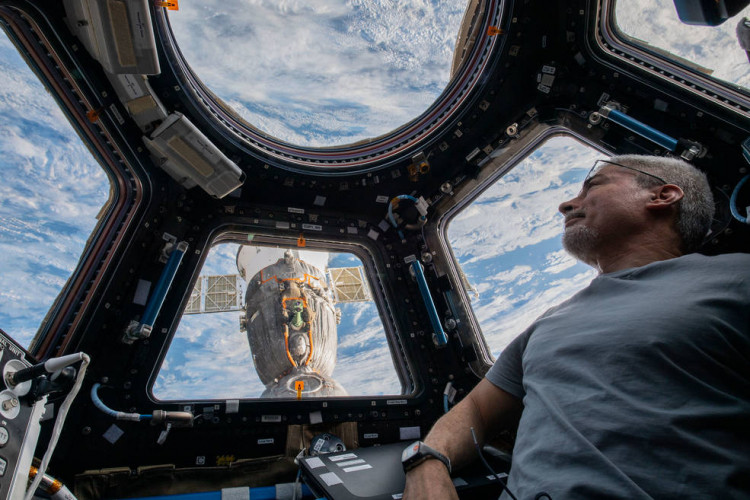After a record-breaking 355 days in low-Earth orbit, NASA astronaut Mark Vande Hei returned to Earth on Wednesday.
Despite tensions between Russia and the U.S. remain high due to the ongoing war in Ukraine, Vande Hei shared a spacecraft with two Russian cosmonauts.
Vande Hei returned in a Soyuz spacecraft with Russian cosmonauts Pyotr Dubrov and Anton Shkaplerov, making a parachute-assisted landing at 7:28 a.m. in Dzhezkazgan, Kazakhstan. The trio had departed the International Space Station at 3:21 a.m. ET.
The trio appeared to be in good health, and Vande Hei will finally get to see his wife and family in person after a record-breaking 355 days in space, something he expressed delight about shortly before departing the station.
Vande Hei said he had "enthusiasm for the opportunities back on Earth to see my family to be present physically with my wife, where... I haven't been in her vicinity since January of last year. So that'll be wonderful," he said during a video broadcast from the ISS yesterday (March 29).
According to NASA, Vande Hei made 5,680 orbits of the Earth and a journey of more than 150 million miles, which is roughly the equivalent of 312 trips to the Moon and back.
Vande Hei now has a total of 523 days in space in his career.
"Mark's mission is not only record-breaking, but also paving the way for future human explorers on the Moon, Mars, and beyond," NASA administrator Bill Nelson said in a news release.
"Our astronauts make incredible sacrifices in the name of science, exploration, and cutting-edge technology development, not least among them time away from loved ones."
After arriving in Kazakhstan today, the crew was taken to a medical tent and then flown to Karaganda by helicopter. Vande Hei was scheduled to go to Houston, Texas, on a NASA jet from there. When he returns home, he'll most likely continue to recover after his 355 days in space, the longest single trip by an American astronaut. NASA astronaut Scott Kelly had previously set a record of 340 days.
According to NASA, Vande Hei was involved in dozens of experiments out of hundreds carried out during his mission, including six science investigations funded by the Human Research Program.
As NASA plans a return to the Moon under the Artemis program and prepares for Mars exploration, Vande Hei's extended mission will allow researchers to study the impact of long-duration spaceflight on humans.






